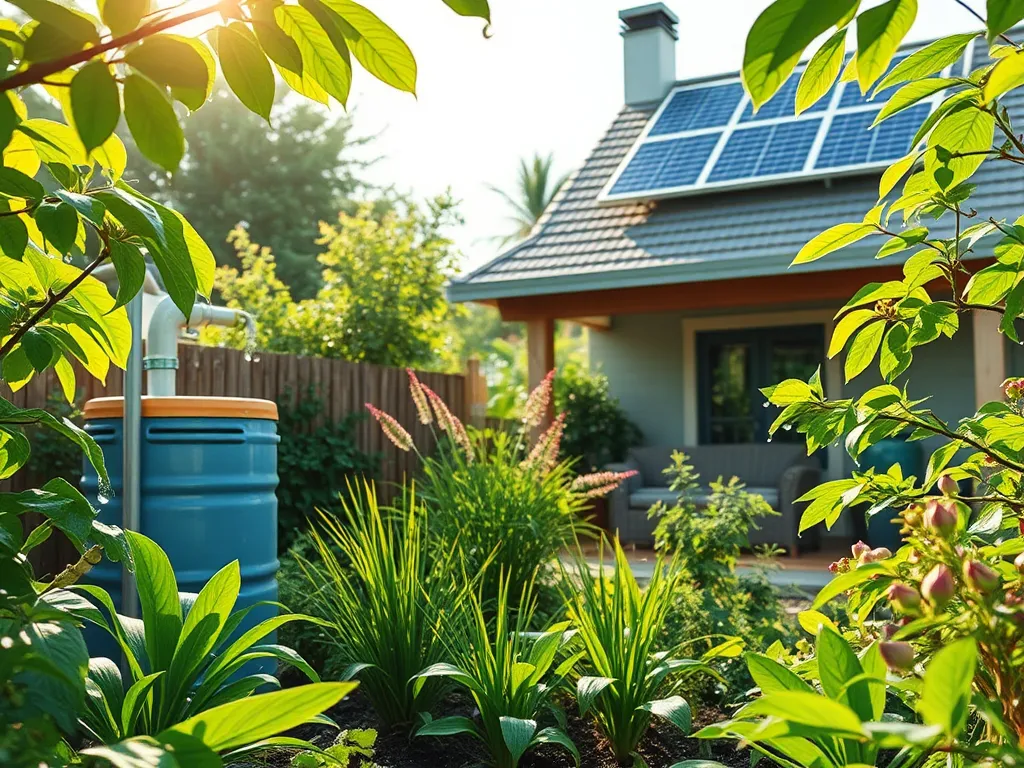Essential Water Conservation Strategies for Eco-Conscious Households

Water Conservation Strategies for the Eco-Conscious Household
In our increasingly water-scarce world, adopting effective water conservation strategies for the eco-conscious household is more vital than ever. Understanding the importance of water conservation not only helps in reducing monthly utility bills but also plays a significant role in preserving our precious water resources for future generations. Every drop counts, and by implementing some simple yet impactful strategies, households can contribute to a sustainable future.
Water conservation strategies for the eco-conscious household encompass a range of practices that minimize water use and promote efficient management of this vital resource. These strategies can be easily integrated into daily routines, greatly enhancing sustainability. From simple behavioral changes to the installation of advanced systems, every effort counts. By making informed choices regarding water usage, families can lead a more eco-friendly lifestyle while also enjoying the benefits of reduced water costs.
In addition to household changes, larger initiatives are essential for long-term sustainability. Community-level programs can amplify the effectiveness of individual efforts, creating a ripple effect for broader water conservation impacts. When people come together to actively participate in conservation measures, collective results can lead to more significant changes at the local, national, and even global levels. A truly eco-conscious household is one that not only adopts sustainable practices at home but also supports and engages with community efforts.
This article will explore various water conservation strategies for the eco-conscious household, including rainwater harvesting, the use of water-efficient appliances, xeriscaping with native plants, greywater recycling, and the adoption of smart water management systems. Each strategy will provide tangible benefits for the environment, while also creating a more efficient and responsible approach to water usage.
Ultimately, by embracing water conservation strategies for the eco-conscious household, individuals and families can make a meaningful impact on the environment, ensuring a sustainable future filled with clean and accessible water for all.
Rainwater Harvesting
Rainwater harvesting is an excellent eco-friendly practice that involves collecting and storing rainwater for various household uses. This method not only helps to reduce reliance on municipal water supplies but also promotes sustainable water management. Households can benefit from rainwater harvesting by utilizing stored water for irrigation, flushing toilets, and even washing clothes, thus conserving valuable drinking water.
Installing a rainwater collection system typically involves setting up gutters and downspouts that direct rainwater into storage barrels or tanks. These systems can range from simple barrels placed under downspouts to complex setups with filtration and pump systems. Homeowners should ensure that their collection systems adhere to local regulations and guidelines to maximize efficiency and safety.
Using harvested rainwater for gardening and irrigation is one of the most popular applications. It provides plants with nutrient-rich water while helping reduce the water bill. Rainwater is naturally soft and free from chlorine and other chemicals found in treated water, making it ideal for nurturing gardens and landscapes.
Water-Efficient Appliances
Investing in water-efficient appliances is another essential strategy for the eco-conscious household. Choosing water-efficient showerheads and faucets can significantly reduce water consumption without sacrificing performance. These fixtures utilize technology to limit water flow while maintaining adequate pressure, ensuring that users enjoy a satisfying experience with less waste.
Furthermore, opting for appliances that have been certified by Energy Star can provide significant water savings. Energy Star-rated dishwashers and washing machines consume less water than their conventional counterparts while providing superior cleaning performance. Homeowners can save both water and energy, contributing to a eco-friendly household.
Dishwashers and washing machines are designed to maximize water efficiency. Modern machines use sensors to determine the optimal water level needed for each load, preventing excess use. By utilizing these appliances effectively, households can dramatically reduce their overall water footprint.
Xeriscaping and Native Plants
Xeriscaping is a landscaping philosophy that emphasizes the use of drought-resistant plants and efficient irrigation practices to create a sustainable garden. The principles of xeriscaping promote the selection of native plants, which are better adapted to local climates and typically require less water and maintenance compared to non-native species.
When selecting drought-resistant plants for landscaping, homeowners should consider their local environment and choose species that thrive in their region. These plants often have deep root systems, helping them access moisture from the soil and requiring less frequent watering, especially during dry spells.
Utilizing native plants in landscaping offers multiple benefits for water conservation. Native plants support local ecosystems and wildlife while requiring fewer resources, including water. Establishing a xeriscaped garden can lead to beautiful, low-maintenance landscapes that contribute to long-term water conservation efforts.
Greywater Recycling
Greywater recycling refers to the process of collecting and reusing wastewater from household activities such as washing, bathing, and dishwashing. Unlike black water, which contains harmful pathogens, greywater can be safely treated and used for irrigation or toilet flushing, significantly reducing freshwater consumption.
To safely recycle water from sinks and showers, households can install simple greywater systems. These systems should filter and treat the greywater to remove impurities before it is reused. Homeowners must ensure that their greywater systems comply with local regulations to avoid any health risks.
Legal considerations for greywater reuse vary by region and often require permits or adherence to specific guidelines. It’s crucial for homeowners to investigate local laws before implementing greywater systems to ensure they operate within the legal framework and maintain safety standards.
Smart Water Management Systems
Smart water management systems have emerged as a revolutionary approach to conserving water in households. These home water monitoring systems allow residents to track water usage and identify areas where they can make significant reductions. Using sensors and connected devices, these systems provide real-time data about water consumption, enabling better management.
Smart irrigation controllers are an excellent feature of smart water management systems. These devices adjust watering schedules based on weather conditions, soil moisture, and plant needs, preventing overuse. Incorporating smart irrigation helps ensure that landscaping receives the necessary amount of water, promoting healthy growth while conserving resources.
Utilizing technology to reduce water wastage can lead to profound changes in household habits. By employing smart systems, families become more aware of their consumption patterns and adjust behaviors accordingly, leading to more responsible and sustainable water usage.
Community Initiatives for Water Conservation
Participating in local water conservation programs is a fantastic way for eco-conscious households to contribute to broader sustainability efforts. Many communities offer initiatives focused on reducing water usage, supporting education, and promoting conservation-minded practices among residents.
Building awareness in the neighborhood is another critical component of community initiatives. Organizing events, informational sessions, or workshops on water conservation can empower residents to adopt sustainable practices and create a collective impact.
Collaborating with local governments for sustainability can help influence policies and regulations that promote water conservation. Engaging with local officials to enact new initiatives or improve existing programs demonstrates to communities that water conservation is a collective effort that benefits everyone.
